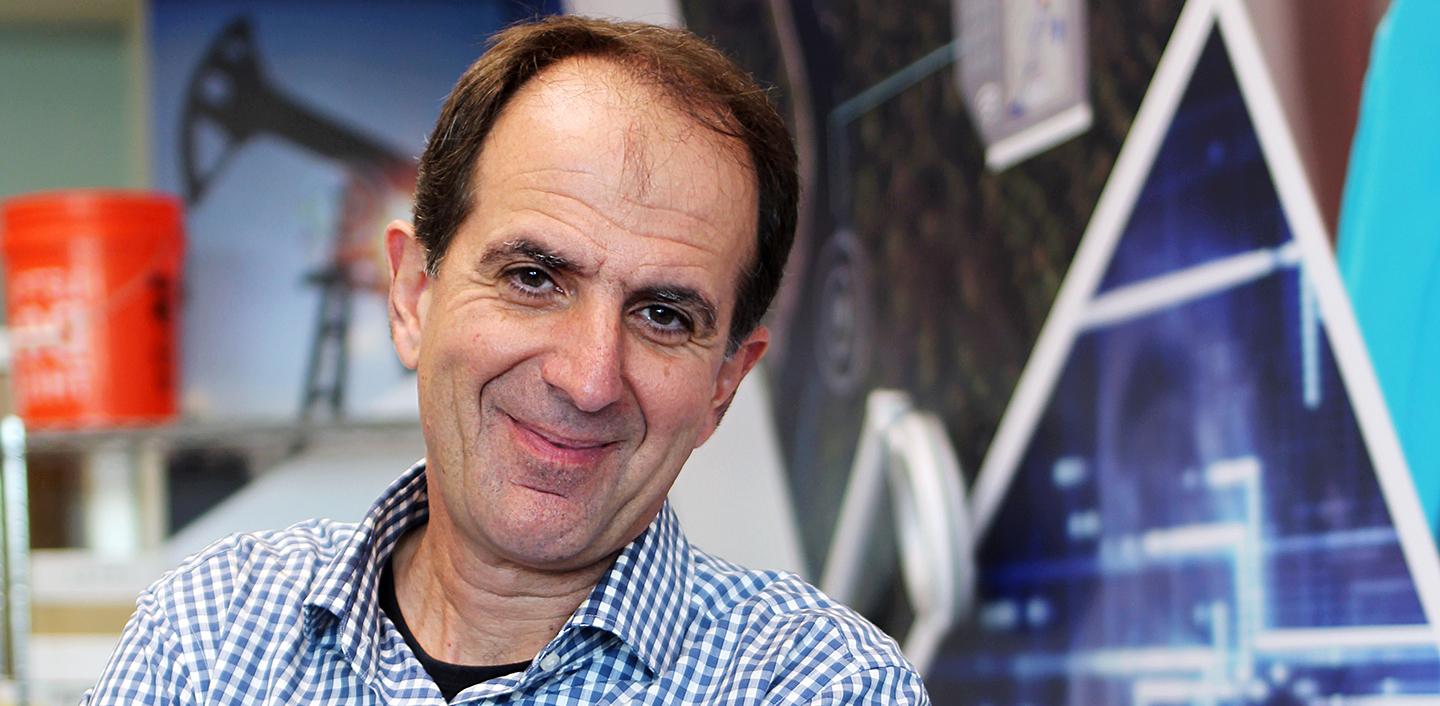Wireless Communications Scholar Joins I-SENSE
Acclaimed wireless communications scholar Dimitris Pados, Ph.D., has joined the Institute for Sensing and Embedded Network Systems Engineering (I-SENSE), where he will continue his cutting-edge research in autonomous communication systems, robust data analytics and localization.
Pados’ path to I-SENSE began in high school, where his passion was pure mathematics. Later, as an undergraduate, he yearned to apply mathematical ideas to the real world, which led him straight to a career in engineering and technology.
“When you approach these fields from an applied mathematics point of view, first you mathematically model in the best possible way the physical phenomena of interest to you, and then model the systems that you would like to build to interact with the physical world,” said Pados. “With these models, you are ready to manipulate and optimize system designs the way you want them.”
His approach translates into innovations that, among other things, protect our national security: drones that reconfigure their signaling after they’ve been intentionally disrupted; underwater vehicles that navigate as if they had a GPS; and algorithms that allow researchers to extract information from severely damaged data.
Pados comes to FAU with a Ph.D. in electrical engineering from the University of Virginia. His career includes teaching credentials from the University of Virginia and University of Louisiana, research work at the Air Force Research Laboratory, and a 20-year run at SUNY Buffalo, where he was named Clifford C. Furnas Chair Professor in the Department of Electrical Engineering and appointed department chair.
“Dr. Pados is an internationally renowned scholar, with diverse expertise spanning a range of areas, from communication theory and systems, to antenna arrays and radar,” said Jason Hallstrom, Ph.D., I-SENSE director. “His most recent work on cognitive airborne networking, supported through the Air Force Research Laboratory, is groundbreaking in its potential to safeguard the nation’s wireless infrastructure.”
In addition to continuing his research, funded by the National Science Foundation and the Department of Defense, Pados eagerly anticipates working with doctoral students on their theses. He will also continue teaching one course every semester at the college, incorporating his research into graduate and undergraduate classes in communications, and data and signal processing.
If you would like more information, please contact us at dorcommunications@e21system.com.
